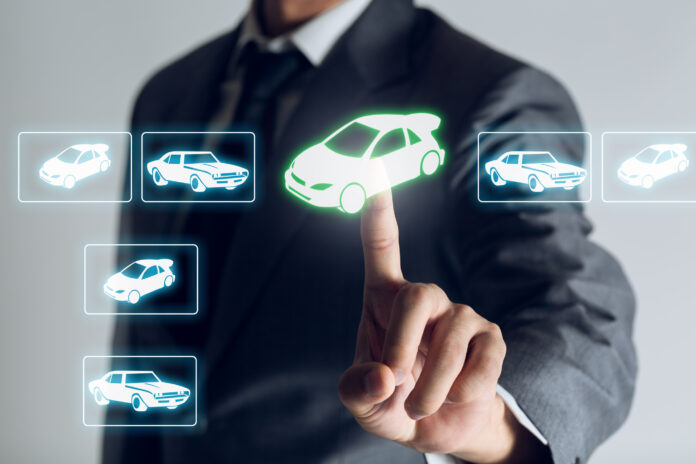
The automotive industry, an arena long dominated by the traditional brick-and-mortar dealership model, is in the midst of a transformation. The rapid evolution of technology, changing consumer preferences, and the emergence of Business-to-Business (B2B) interactions are reshaping the landscape of automotive retail. In this comprehensive exploration, we delve into the transformative trends that are not only shaping the future of automotive retail but also revealing significant implications for businesses across the industry.
The Evolution of Automotive Retail
Online Sales
The rise of the internet has unleashed a revolution in how consumers research and purchase vehicles. Online sales platforms have emerged as formidable game-changers, offering prospective buyers the convenience of browsing, configuring, and even purchasing vehicles directly from the comfort of their homes. This shift towards online sales signifies more than just a change in channel; it represents a fundamental transformation in how consumers perceive and engage with the automotive retail process.
For automakers and traditional dealerships, this digital evolution demands a fundamental rethink of their business models. It necessitates the development of a robust online presence, the provision of responsive and engaging customer support, and the creation of innovative digital marketing strategies. To stay competitive in this brave new world of online automotive retail, businesses must adapt to the demands of a tech-savvy consumer base.
Case Study 1: Tesla’s Direct-to-Consumer Model
Tesla, the electric vehicle pioneer, has disrupted the traditional dealership model by adopting a direct-to-consumer sales approach. Customers can explore Tesla’s vehicles, configure options, and place orders entirely online. This approach offers transparency in pricing, instant customization, and a seamless purchasing process. Tesla’s success in online sales has prompted other automakers to consider a similar approach, challenging the conventional dealership model.
Case Study 2: Carvana’s Online-Only Dealership
Carvana, an online-only used car dealership, has revolutionized the way people buy used cars. Customers can browse an extensive inventory of vehicles on the Carvana website, view detailed 360-degree images, access vehicle history reports, and complete the entire purchase process online. Carvana even offers contactless delivery, allowing buyers to have their chosen vehicle delivered directly to their doorstep.
Virtual Showrooms
Virtual showrooms take the online car-buying experience to an entirely new level. Through cutting-edge Virtual Reality (VR) and Augmented Reality (AR) technologies, customers can immerse themselves in a three-dimensional virtual space where they can explore vehicles, inspect intricate details, customize features, and even embark on virtual test drives—all without setting foot inside a physical dealership.
This transformative technology not only enhances the customer experience but also redefines the role of traditional showrooms. Dealerships can reduce their reliance on extensive physical showroom space and instead invest in creating captivating virtual experiences. However, maintaining an engaging and informative virtual showroom experience necessitates substantial investments in state-of-the-art technology and exceptional customer support.
Case Study 3: Audi Virtual Reality Showroom
Audi introduced a virtual reality (VR) showroom concept that allows customers to explore their vehicles in a VR environment. Customers wear VR headsets and use handheld controllers to customize their Audi models in a virtual showroom. They can interact with the vehicle’s features, change colors, and explore interior options. Audi’s VR showroom provides an immersive and interactive experience that complements the traditional showroom visit.
Case Study 4: Volvo’s AR Test Drive
Volvo leveraged Augmented Reality (AR) to offer potential customers a unique test drive experience. Through a mobile app, users could project a life-sized AR version of a Volvo XC40 into their real-world environment. They could explore the vehicle’s features, take a virtual test drive, and even interact with the car’s interior. This creative use of AR technology allowed Volvo to engage potential customers in an interactive and memorable way.
B2B Implications: Navigating a Digital Frontier
As the automotive retail landscape undergoes a digital metamorphosis, the implications for Business-to-Business (B2B) relationships within the industry become increasingly apparent.
Supplier Relationships: A New Paradigm
In this digitally driven era of automotive retail, the relationships between automakers and suppliers take on a heightened significance. Online sales platforms require seamless integration with complex supply chain systems to ensure timely deliveries and accurate inventory management. Effective collaboration between manufacturers and suppliers becomes not just a competitive advantage but a necessity to meet the demands of an increasingly complex online marketplace.
Data-Driven Decision-Making: Powering the Future
The digitalization of automotive retail generates vast troves of data. B2B players across the industry can leverage this invaluable resource for predictive analytics, demand forecasting, and inventory optimization. By meticulously analyzing customer preferences, market trends, and real-time data streams, manufacturers and suppliers can make informed decisions about production, inventory levels, and product development. The ability to adapt and respond swiftly to shifting market dynamics becomes a strategic imperative.
The Role of Dealerships: Adapting and Thriving
In the face of this digital transformation, traditional dealerships find themselves at a crossroads. While online sales and virtual showrooms redefine the consumer journey, dealerships still play a pivotal role in the auto shop ecosystem. They serve as vital points of contact for customers seeking test drives, vehicle servicing, and expert advice.
To remain relevant, dealerships must navigate the online-to-offline convergence adeptly. By offering a seamless and integrated experience, they can ensure that customers receive consistent service and support throughout their automotive journey. This includes facilitating transitions from virtual exploration to physical interaction, and ensuring that customers’ needs are met at every touchpoint.
The Road to Retail Success
The future of automotive retail is undeniably digital, driven by the transformative forces of online sales and virtual showrooms. In this era, B2B relationships will evolve to support this profound transformation, necessitating ever-closer collaboration between automakers, suppliers, and dealerships.
In this new landscape, the industry’s successful players will be those who wholeheartedly embrace technology, invest strategically in digital infrastructure, and prioritize customer-centric experiences. The automotive industry is on an exhilarating journey of innovation, where convenience, personalization, and efficiency are poised to define the retail experience.
As online sales and virtual showrooms continue to reshape the industry, businesses that adeptly adapt and thrive in this digital era will play a defining role in shaping the future of automotive retail. The road ahead is filled with exciting possibilities, where convenience, personalization, and efficiency reign supreme, ultimately creating a brighter and more dynamic future for the automotive retail sector.




